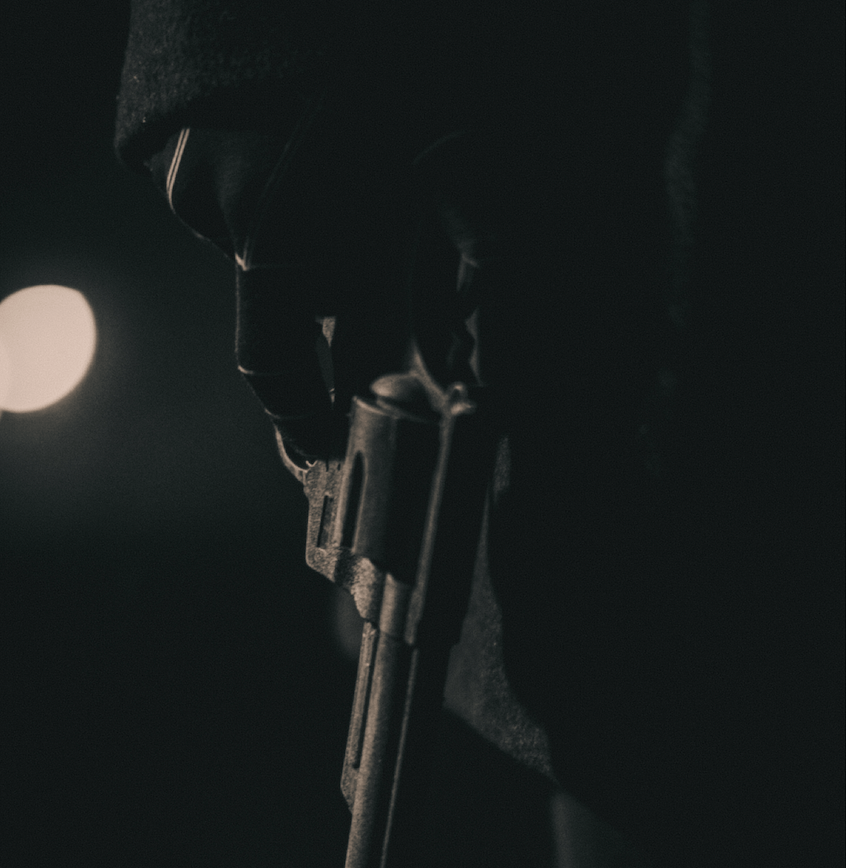Guamanians Darlene Mendiola and Jake Lizama survived a gunman’s double attack Monday in Mexico, but their friend Isaac Lopez did not. Ms. Mendiola, 24, and Mr. Lizama, 23, live in California but are from Guam, according to her father, James Mendiola, a former pastor at Temple Baptist Church in Guam, and the current pastor of Guahan Baptist Church.
Mr. Lopez was Darlene and Jake’s roommate in a California apartment that was under his name. According to a news report by Vivian Chow of KTLA, the two men were boyfriends. The three families have been consumed with trying to repatriate his remains from Tijuana, where the shooting happened, and tending to Mendiola and Lizama’s recovery in San Diego. How the two survivors will be able to afford their living arrangements has yet to be addressed, Mr. Mendiola said.
Neither have the Mendiolas figured out how they will be able to afford so many unknown realities as he and his wife, Rose, take things one day at a time. “We are a struggling family,” Mr. Mendiola said, adding his gratitude for the generous financial support of members of his congregation at Harvest Baptist Church, which is a sister church to Guahan Baptist. Because of their help, Rose is standing by to board a plane to California so she can be with Darlene. “We never could have made it without help,” he said.
If you want to help the Mendiolas and the Lizamas, Harvest will accept donations on their behalf at their church along Canada-Toto Loop Road, Toto. Harvest’s executive pastor, Jared Baldwin, has been assisting the Mendiolas along with other churchgoers. If you have questions on how you can help, please call Harvest’s ministry number at (671) 477-6341
The shooting
The three roommates drove to Mexico last week to visit Mr. Lopez’s grandmother and to attend his sister’s vow renewal celebration, according to Ms. Chow’s report. Early Monday morning they left their AirBNB in Tijuana to make the hour-and-a-half drive to the Mexico-U.S. border, according to information provided by Mr. Mendiola. About 20 minutes into their drive, a car rammed their vehicle off the road and a gunman shot the three and robbed them. All three were carrying their mobile phones but the gunman did not take Mr. Lizama’s.
Ms. Chow’s report on KTLA states the gunman only took Mr. Lopez’s phone.
Thinking the gunman had left, Mr. Mendiola said the survivors tried to get emergency help using the remaining phone, but no one came at first except for the gunman. He returned and shot the three again. Ms. Mendiola was shot in the chest and the arm, a bullet fragment remaining in her because it is lodged too close to her heart to remove. She has been released from the hospital and is recovering.
Mr. Lizama was shot in the shoulders, with a bullet exiting through his back. He survived and is recovering with the support of his grandmother’s sister who lives in California. Mr. Lizama’s family also is helping Darlene as she recovers.
Mr. Lopez died, presumably of gunshot injuries to his head. According to Ms. Chow’s report, Mr. Lopez was shot in the head as he was driving, which is how their vehicle was forced off the road. Chow’s report also states that the gunman did not take Mr. Lopez’s wallet.
The three friends remained on the side of the road bleeding out for five hours before they were rescued and the two survivors taken to Scripps Hospital in San Diego Monday, California time.
“No one stopped for a while,” Mr. Baldwin, affectionately known as ‘Pastor Jared,’ said.
“Lopez, an aspiring singer-songwriter living in Riverside, was excited to reunite with family members during the short trip,” Ms. Chow’s report says.
“Why did you shoot my daughter?”
Darlene’s brother, who also lives in California, tracked her phone after the incident, according to their father. The person who had her phone made a stop at a pizza parlor in Tijuana, according to the tracker, though providing that information to Mexican authorities does not seem to have helped.
“We received a text message in Spanish,” Mr. Mendiola said about the start of messages and phone calls he, his wife, and his wife’s mother began to receive after the attacks. He said he asked a friend to translate the text and he was told it said, “Give me the password or I’ll find you and kill you.”
The person then began to call Rose using Darlene’s phone. At first the Mendiolas did not want to answer the calls. Finally, Mr. Mendiola answered and said, “Se habla Ingles,” which loosely translates to “English is spoken.” A man answered, “Yes,” Mr. Mendiola said.
“Why did you shoot my daughter?” he asked the man who called. “You shot her. You left her for dead.”
“Password! Password!” was the man’s reply, according to Mr. Mendiola.
The man called Darlene’s grandmother as well demanding to know Darlene’s Apple ID password, Mr. Mendiola said.
U.S. State Department: Reconsider travel to Tijuana
Americans, including Guamanians living in or visiting Southern California, have long included Tijuana City as a cross-border vacation spot. Tijuana is part of Baja California, a Mexican state that borders California. The U.S. State Department on September 6 this year issued the following warning (provided in part to correspond to Baja):
Baja California state – Reconsider Travel
Reconsider travel due to crime and kidnapping.
Transnational criminal organizations compete in the border area to establish narco-trafficking and human smuggling routes. Violent crime and gang activity are common. Travelers should remain on main highways and avoid remote locations. Of particular concern is the high number of homicides in the non-tourist areas of Tijuana. Most homicides appeared to be targeted; however, criminal organization assassinations and territorial disputes can result in bystanders being injured or killed. U.S. citizens and LPRs have been victims of kidnapping.
Country Summary: Violent crime – such as homicide, kidnapping, carjacking, and robbery – is widespread and common in Mexico. The U.S. government has limited ability to provide emergency services to U.S. citizens in many areas of Mexico, as travel by U.S. government employees to certain areas is prohibited or restricted. In many states, local emergency services are limited outside the state capital or major cities.
U.S. citizens are advised to adhere to restrictions on U.S. government employee travel. State-specific restrictions are included in the individual state advisories below. U.S. government employees may not travel between cities after dark, may not hail taxis on the street, and must rely on dispatched vehicles, including app-based services like Uber, and regulated taxi stands. U.S. government employees should avoid traveling alone, especially in remote areas. U.S. government employees may not drive from the U.S.-Mexico border to or from the interior of Mexico, except daytime travel within Baja California and between Nogales and Hermosillo on Mexican Federal Highway 15D, between Nuevo Laredo and Monterrey on Highway 85D and between Ciudad Juarez and interior cities as noted in the Chihuahua section.








1 Comments
Grandpa
10/10/2024 at 6:51 PM
That trip was dangerous in the 70’s. Seen many burned out cars along side the roadways bac then.